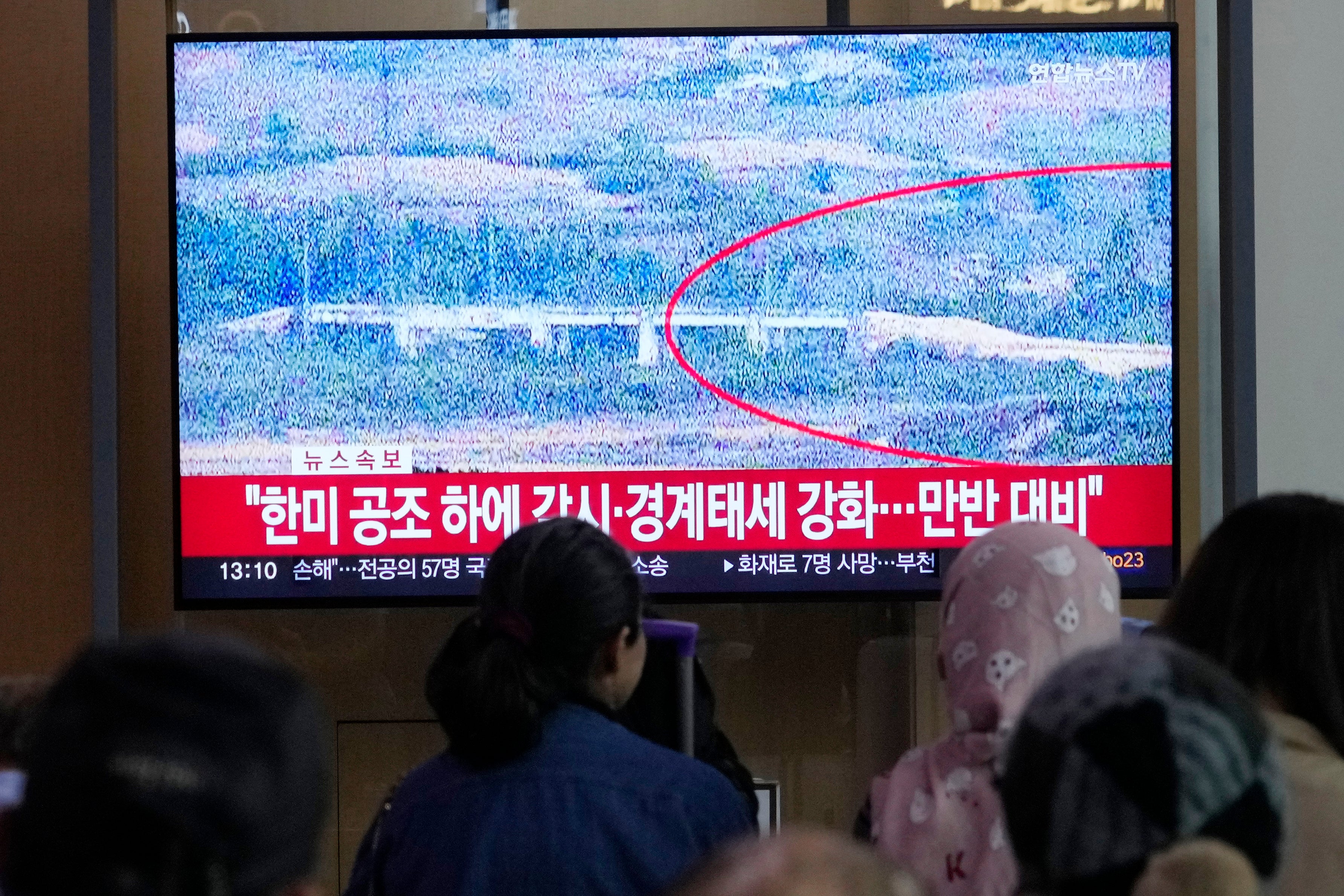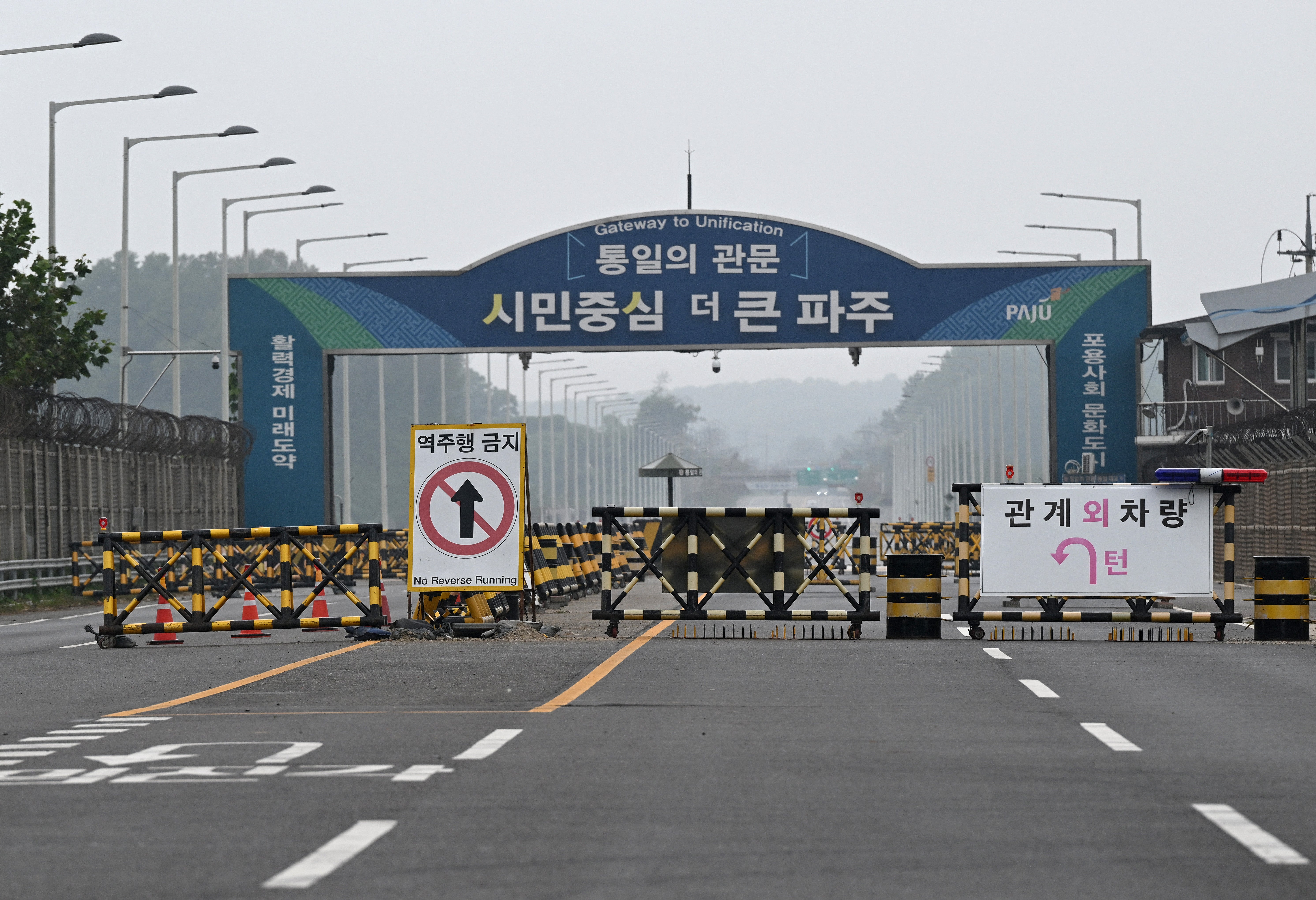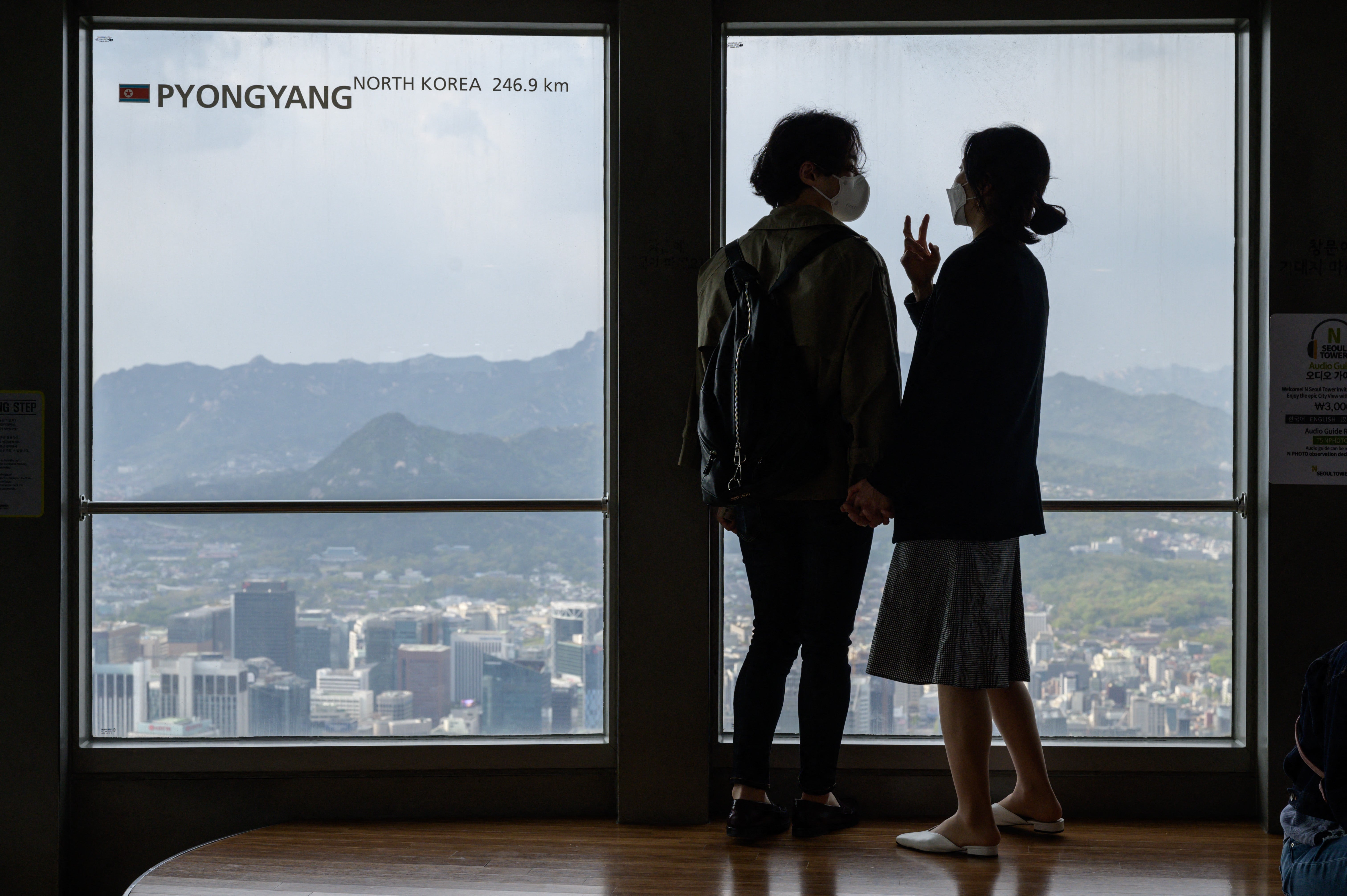Your support helps us to tell the story
This election is still a dead heat, according to most polls. In a fight with such wafer-thin margins, we need reporters on the ground talking to the people Trump and Harris are courting. Your support allows us to keep sending journalists to the story.
The Independent is trusted by 27 million Americans from across the entire political spectrum every month. Unlike many other quality news outlets, we choose not to lock you out of our reporting and analysis with paywalls. But quality journalism must still be paid for.
Help us keep bring these critical stories to light. Your support makes all the difference.
South Korea fired warning shots after North Korea blew up sections of inter-Korea roads as the rival nations exchanged threats of destruction amid soaring regional tensions.
Pyongyang destroyed its side of the roads on Tuesday after vowing to cut off road and railway links that once symbolised peaceful cooperation and eventual peace.
The move came after the North declared that its military was on standby to unleash “firepower” in retaliation for South Korea allegedly flying drones into Pyongyang. The country’s defence ministry warned that a “war may break out any moment” on the Korean peninsula.
The South Korean military said it fired warning shots in response to the explosions across the border, without providing details.
“The North Korean military conducted detonations, assumed to be aimed at cutting off the Gyeongui and Donghae roads, at around noon and is carrying out additional activities using heavy equipment,” the Joint Chiefs said according to Yonhap news agency.
It wasn’t immediately known if the North responded to the South’s firing.

A video provided by the South Korean military showed a cloud of white and grey smoke rising after an explosion on a road near the border town of Kaesong and trucks and excavators arriving to clear out the debris. A second video showed smoke emerging from a coastal road along the eastern border.
Seoul said it was bolstering its military readiness and surveillance in coordination with the US.
In spite of the escalation on Tuesday, observers said that it was unlikely that North Korea would launch a preemptive attack on the South as it would be met with a stronger retaliation from Seoul backed by the US.

North Korean leader Kim Jong-un said in January that Pyongyang had given up on peaceful unification of the Korean peninsula and formally designated the South as his country’s “invariable principal enemy”.
This marked a break from his predecessors who cherished dreams of unifying the peninsula, presumably on North Korea’s terms.
The North’s military last week announced a plan to ”completely separate” its territory from the South and informed the US of the move to “prevent any misjudgment and accidental conflict”.

The North then reportedly removed street lamps and installed mines on its side of the Gyeongui and Donghae roads. Pyongyang also deployed soldiers to build anti-tank barriers and reinforce barbed wire fences on its side of the demilitarised zone.
Mr Kim called a meeting with his military and security officials on Monday to discuss the South’s alleged drone provocation, state media KCNA reported.
At the meeting, Mr Kim described the drone flights as the “enemy’s serious provocation” and laid out unspecified tasks related to “immediate military action” and the operation of the country’s “war deterrent” to defend its sovereignty.
This is the first time North Korea has accused its rival of flying drones to drop propaganda leaflets into the country. The two sides have frequently accused each other of flying balloons filled with trash and leaflets into each other’s territory throughout the year.
In 2020, North Korea blew up an empty liaison office building built by the South just north of the border in retaliation for the rival nation’s leafleting campaigns.
The two Koreas are still technically at war since it was an armistice that ended the 1950-1953 Korean War and not a peace treaty.
Additional reporting by agencies.

